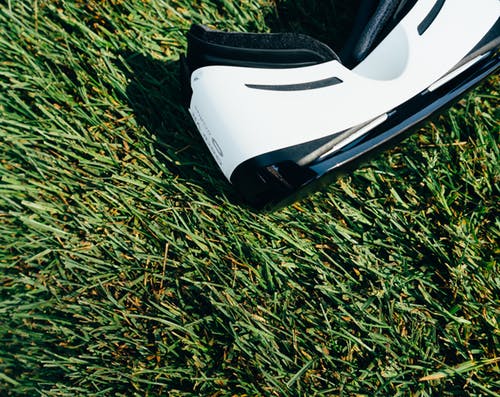
OCU officials have been hosting events for students to learn about and experience virtual reality.
Representatives from the Commonwealth Shakespeare Company visited the School of Theatre on Nov. 8-9 and provided students with a virtual reality experience.
The CSC showcased “Hamlet 360: Thy Father’s Spirit,” an immersive, 360-degree virtual reality adaptation of Shakespeare’s “Hamlet,” where viewers are “cast” as the ghost of Hamlet’s dead father.
Adam Sanders, CSC managing director, said VR is a unique, distinct medium that allows audiences to completely immerse themselves in the story.
“Really, VR does away with the idea of a ‘frame’ altogether,” Sanders said. “When watching film or theater, there are lots of reminders that you’re watching an abstraction and that you’re not actually a part of it. The best VR experiences are those that hide and disguise that audience removal.”
Sanders said adapting “Hamlet” into a VR production was challenging at times.
“It’s not something people have completely adapted to yet. Some find it uncomfortable and hard to sit through for long periods of time because you’re basically sitting with a computer screen a couple inches away from your face,” Sanders said. “We condensed our version of the play to an hour, which is just long enough for us to explore all the possibilities of VR while still offering a complete, contained story.”
Sarah Martin, acting junior, said the CSC went to great lengths to make the experience as immersive as possible.
“We were given both goggles and really large headsets,” Martin said. “The really interesting part was that we sat in chairs that could swivel and roll around, so I really felt like I was in the room with the actors.”
Martin said seeing the play through the eyes of Hamlet’s father enhanced the experience.
“When the ghost gives his monologue to Hamlet, the camerawork is set up to where Hamlet is looking straight at you,” Martin said. “Also, when you look into reflections, you see yourself as the father, which is very interesting.”
Martin said some of the camerawork showcased the darker, more terrifying parts of “Hamlet.”
“For ‘Ophelia’s’ drowning, they placed cameras into a tub of water where the actress playing Ophelia thrashed and drowned right beside you, which was horrifying,” Martin said. “Sometimes, with VR, the logic side of your brain kind of goes away when it experiences horrible things, so during that scene I had to remind myself that I wasn’t actually underwater and that I was okay.”
Sanders also hosted workshops for students about acting in VR. Sanders said VR acting differs from theater and film acting and presents its own set of challenges.
“With theater, actors work very hard to project their performance across space and time to an audience,” Sanders said. “Film actors also work hard, but that relationship with the audience is primarily established through cinematography and editing. With VR you kind of get the worst of both worlds, which I say only half-jokingly. You have the responsibility to project your performance while also treating the camera as the audience itself, without receiving that immediate feedback.”
Martin said she encourages other actors to take advantage of virtual reality theatrical experiences.
“Watching virtual reality acting gives a unique perspective into the possibilities of connecting with an audience who is behind a screen,” Martin said.
Officials from the School of Visual Arts also organized a CGI and VR workshop with deadCenter Film during the same weekend.
“You see so many films nowadays and there is the incorporation of CGI, technology, virtual reality,” said Heather Lunsford, director of the School of Visual Arts. “All of those are in films now. And now with our new game design and animation classes, we really wanted to do a collaboration and a workshop with deadCenter where we bring in people from the industry and talk about those things and let students experience our new technology here and talk about how film is moving in that direction.”
Lunsford began organizing the event about two months ago. She said deadCenter does educational outreach and they’ve previously done screenwriting workshops with the film department.
“The film industry’s changing and becoming more technological,” Lunsford said. “Rarely do you see any movie now that has no technological aspect to it.”
Lunsford said the event included a panel discussion on CGI and virtual technology with members of the industry, a Q&A session with the panelists and a virtual reality job fair, amongst other sessions.
“I think it’s really interesting. I’ve wanted to work in some CGI stuff,” said Marty Gibson, studio art senior.
Gibson said they were double majoring in studio art and film but dropped their film major to graduate earlier. Gibson said the integrated knowledge of film and computer graphics is very valuable to people wanting to work in the film industry.
“That’s kind of been, I wouldn’t say a problem, but one of those things that needs to be worked on; that film, art and computer graphics don’t work together at this school,” Gibson said. “But now that we have more teachers coming in and stuff, I’m noticing that it’s starting to get better, and I just wish I wasn’t a senior right now.”
Contributing: Copy Editor Paul Dower


Leave a Reply